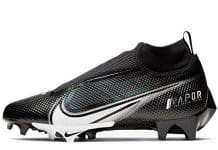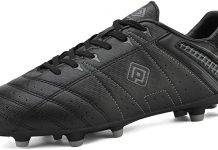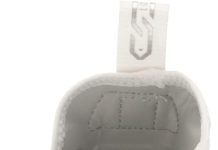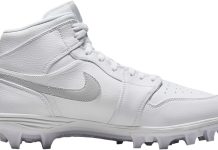This article will explore a common question when selecting a product: Are detachable or molded options more durable over time?
We know that durability is a critical factor for many consumers when making purchasing decisions, and understanding the longevity of these two options can significantly influence our choices.
By examining the pros and cons of detachable and molded products, we hope to shed light on this topic and help you decide on the best option for your needs.
Factors affecting the durability of dental appliances
When it comes to the durability of dental appliances, several factors can influence their longevity. These factors include material quality, manufacturing process, and daily care and maintenance. By understanding and considering these factors, individuals can make informed decisions about the type of dental appliance best suited for their needs.
Review contents
Material quality
The quality of materials used in the construction of dental appliances plays a significant role in their durability. Different materials may vary in their strength and resistance to wear and tear. Dental appliances made from high-quality materials, such as metal alloys or ceramics, are generally more durable than those made from lower-quality materials.
Manufacturing process
The manufacturing process of dental appliances is another essential factor to consider. How the appliance is fabricated can impact its overall durability. For example, cast or machined with precision appliances tend to be more durable than those made through less precise methods.
Daily care and maintenance
Proper care and maintenance of dental appliances are crucial for ensuring their longevity. Regular cleaning and maintenance can help prevent the buildup of plaque, bacteria, and other debris that can contribute to the degradation of the appliance. It is essential to follow the manufacturer’s instructions for care and cleaning to maximize the durability of the dental appliance.
Detachable Dental Appliances
Detachable dental appliances are devices that can be easily removed from the mouth. These appliances offer various advantages and disadvantages compared to their molded counterparts. Let’s explore these aspects in more detail.
Definition and Types
Detachable dental appliances, as the name suggests, are dental devices that can be taken out of the mouth. They are designed to address dental issues, such as teeth misalignment, bite correction, and tooth replacement. Examples of detachable dental appliances include removable dentures, retainers, and clear aligners.
Advantages
One of the significant advantages of detachable dental appliances is their ease of cleaning and maintenance. Since they can be easily removed, individuals can thoroughly clean the appliance and oral cavity, reducing the risk of plaque buildup and dental issues.
Furthermore, detachable appliances offer adjustability and versatility. They can be adjusted as needed to accommodate mouth or dental alignment changes. This flexibility is particularly beneficial in orthodontic treatment, where gradual adjustments are required.
Detachable dental appliances are also less expensive to repair than molded appliances. If a component of the appliance breaks or becomes damaged, it can often be replaced individually without replacing the entire appliance.
Disadvantages
Despite their advantages, detachable dental appliances also have some disadvantages. One potential drawback is the potential for movement and discomfort. Since these appliances are not firmly affixed to the natural teeth, they may shift or move during eating or speaking, causing temporary discomfort or irritation.
Another drawback is the increased risk of damage. Detachable dental appliances can be accidentally dropped or mishandled, leading to breakage or deformation. Additionally, certain foods should be cautiously avoided or consumed to prevent damage to the appliance.
Finally, detachable appliances may be perceived as less aesthetically appealing than molded ones. While advancements have been made to improve the appearance of detachable appliances, they may still be visible when worn, which some individuals may find undesirable.
Durability Comparison
When comparing the durability of detachable dental appliances to molded appliances, several factors come into play.
Materials used in detachable appliances
Detachable dental appliances are typically made from acrylic, metal, or both. These materials can vary in their durability and resistance to wear. For example, metal components are generally more durable and deformation-resistant than acrylic.
The manufacturing process of detachable appliances
The manufacturing process of detachable dental appliances can impact their longevity. Appliances that are meticulously fabricated using precise techniques are more likely to be durable compared to those made through less precise methods.
Longevity of detachable appliances
The longevity of detachable dental appliances can vary depending on factors such as the material used, the manufacturing process, and the individual’s oral hygiene habits. Detachable appliances can often last several years with proper care, regular maintenance, and adherence to the manufacturer’s guidelines.
Molded Dental Appliances
Molded dental appliances refer to custom-made devices to fit the individual’s mouth. These appliances offer unique advantages and disadvantages compared to their detachable counterparts. Let’s explore these aspects in more detail.
Definition and Types
Molded dental appliances, or fixed appliances, are designed to fit precisely onto the individual’s teeth. They are commonly used in orthodontic treatments to correct tooth misalignment, improve the overall bite, or address other dental concerns. Examples of molded dental appliances include braces, dental bridges, and dental implants.
Advantages
One of the significant advantages of molded dental appliances is their precise fit and stability. These appliances are custom-made to fit the individual’s teeth, ensuring maximum comfort and effectiveness. The precise fit also allows for better control and more predictable treatment outcomes in orthodontic cases.
Molded dental appliances often provide improved comfort compared to detachable appliances. Since they are fixed onto the teeth, there is no potential for movement or irritation caused by removable components. Once the individual becomes accustomed to the appliance, they can carry out everyday activities without discomfort.
Additionally, molded dental appliances offer an enhanced aesthetic appearance. They are designed to blend seamlessly with natural teeth, so they are less visible than detachable appliances. This makes molded appliances a popular choice for individuals who prioritize aesthetic appeal.
Disadvantages
While molded dental appliances offer numerous advantages, they also have disadvantages. One potential drawback is the complex cleaning and maintenance process. Since these appliances are fixed onto the teeth, individuals must practice diligent oral hygiene to prevent plaque buildup and other dental issues.
Another disadvantage is the potential for increased treatment time. Molded appliances, such as braces, require regular adjustments and visits to the orthodontist to achieve the desired outcome. This can extend the duration of treatment compared to detachable appliances that allow for more flexibility in adjustment.
Durability Comparison
Several factors must be considered when comparing the durability of molded dental appliances to detachable appliances.
Materials used in molded appliances
Molded dental appliances are typically made from metal, ceramic, or both. These materials offer excellent strength and durability, ensuring the appliance can withstand the forces exerted during daily activities.
The manufacturing process of molded appliances
The manufacturing process of molded dental appliances involves creating a custom mold of the individual’s mouth to ensure a precise fit. This attention to detail and personalized fabrication process contributes to the overall durability of the appliance.
Longevity of molded appliances
With proper care, regular check-ups, and maintenance, molded dental appliances can last many years. The individual’s oral hygiene habits and adherence to the orthodontist’s instructions play a significant role in maintaining the longevity of these appliances.
In conclusion, the durability of dental appliances is influenced by various factors such as material quality, manufacturing process, and daily care and maintenance. Detachable dental appliances have their advantages, including ease of cleaning and adjustability. However, they also have potential drawbacks, such as movement and a higher risk of damage.
On the other hand, molded dental appliances offer a precise fit, improved comfort, and enhanced aesthetics. Both types of appliances can be durable over time if proper care and maintenance are followed. Ultimately, the choice between detachable and molded dental appliances should be based on individual needs and preferences, as well as the recommendations of dental professionals.





































